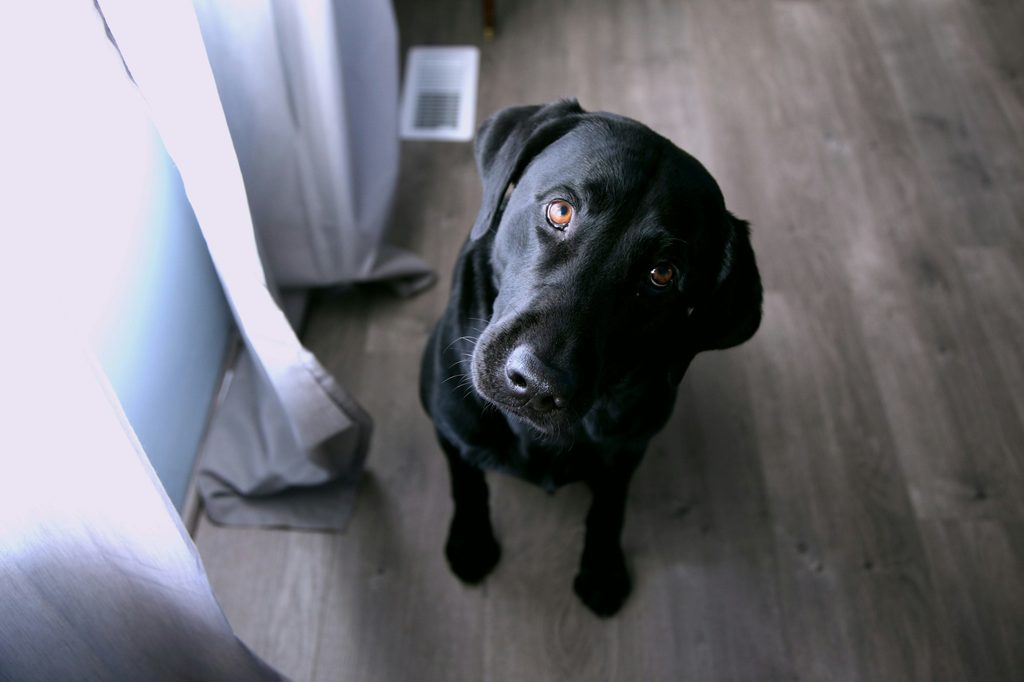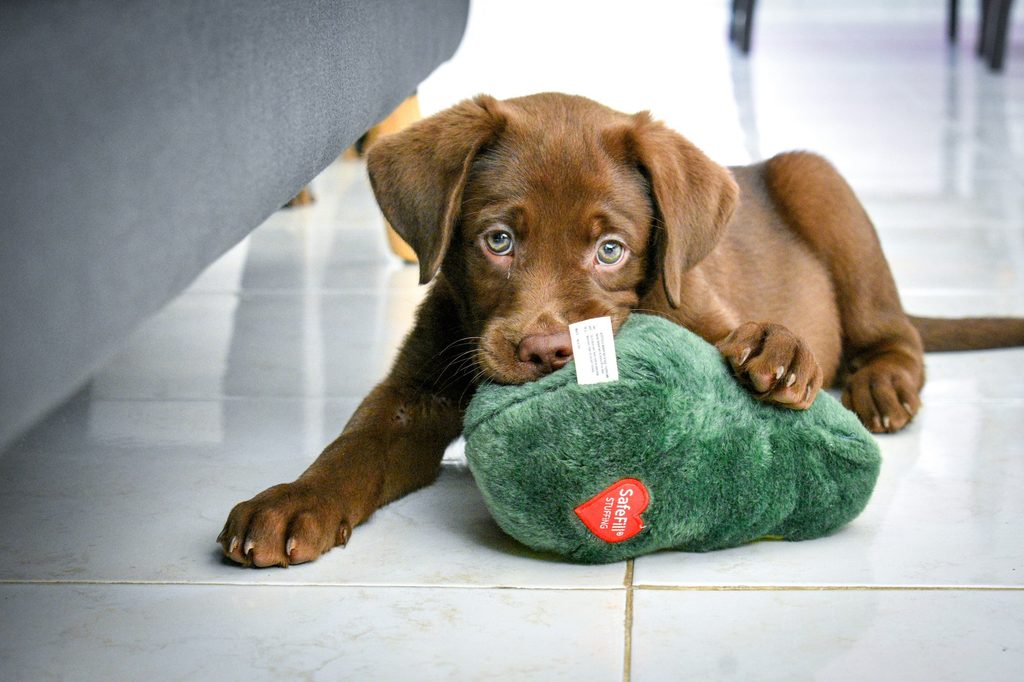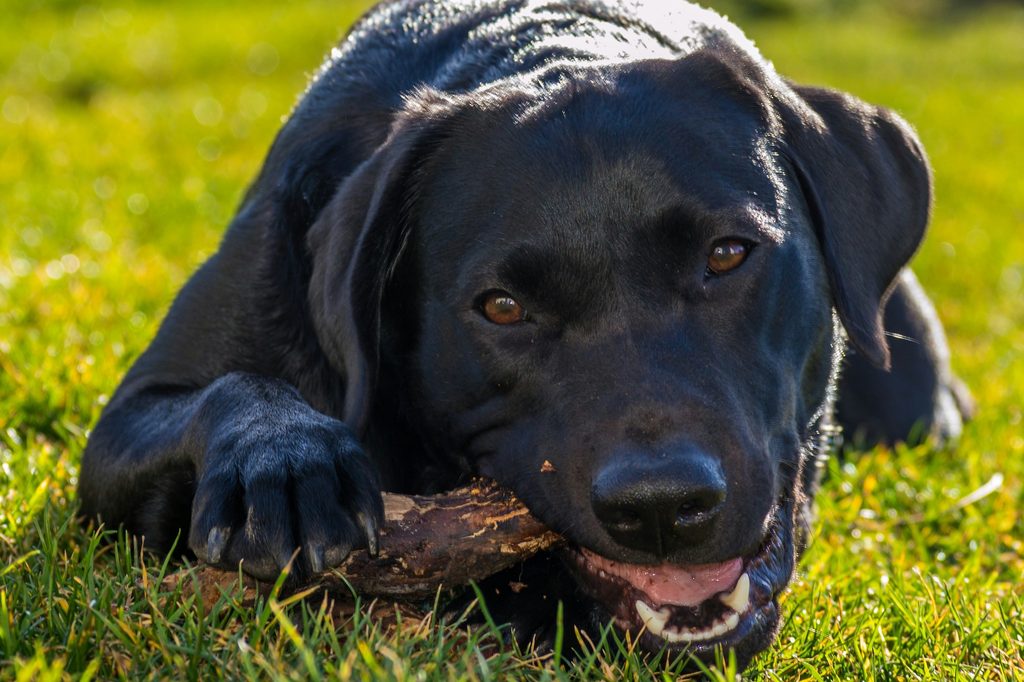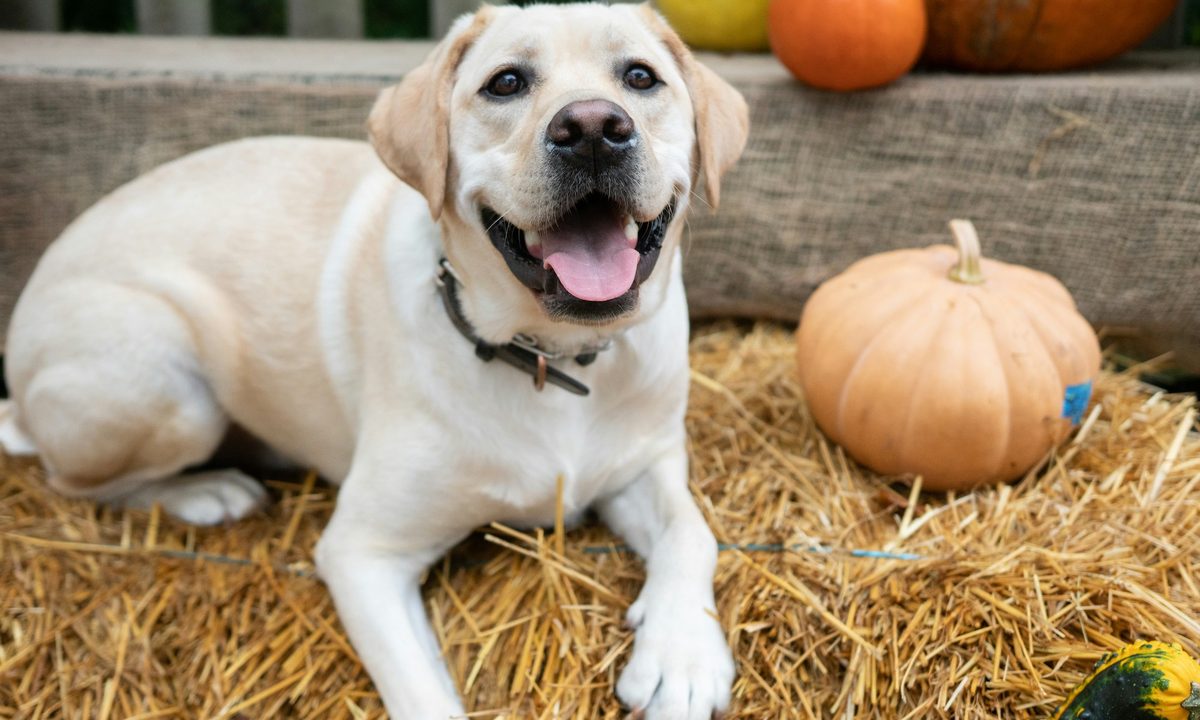Having a food-loving dog at home can have its challenges, especially when you’re cooking their favorite food. Plenty of pups risk getting in trouble just to steal a single bite. Luckily, dog owners can also use their pup’s love of food to their advantage during training, so having a constantly hungry dog can have its perks, too.
There’s no shortage of food-motivated dogs — in fact, it sometimes seems as if they’re all food-motivated pups — but some vigilant veterinarians have noticed a correlation between a dog’s breed and a voracious appetite. Many dog breeds are known for their ravenousness, but one breed in particular tops the charts. If you feel like your Labrador retriever can never get enough to eat, you’re not alone.
So, why are Labs always hungry? While it may seem like these dogs are simply energetic with a high metabolism, there’s a scientific reason why many Labs are never satisfied.
Why are Labrador retrievers always hungry?

While many large dog breeds, like the Labrador retriever, burn more calories due to their higher metabolism, some Labs actually burn fewer calories in daily life. That’s because about 25% of Labs have a mutation in the pro-opiomelanocortin, or POMC gene, which causes two major changes in their metabolism.
First, affected dogs burn about 25% fewer calories when resting and sleeping compared to dogs without the genetic mutation. This means that these dogs would need to consume fewer calories in order to maintain a healthy weight, but this can be especially difficult for Labs with the POMC mutation. These dogs also tend to get hungrier more quickly between meals, which often leads to overeating. If given the opportunity, they would continue to eat nonstop.
In the long run, dogs with the POMC mutation usually struggle with obesity and weight-related health complications. They may also struggle with behavior around food due to nagging feelings of hunger, but a visit to your dog’s veterinarian can help you create the best plan to help your dog curb extra eating.
Are Labs the only dogs with the POMC mutation?

While Labrador retrievers are known for their endless hunger and extra weight gain, they’re certainly not the only breed that can be affected by the POMC mutation. Their cousins, flat-coated retrievers, experience this mutation even more frequently than Labs. About 66% of these dogs have the same genetic mutation, which develops in the DNA before birth. As far as research shows, this mutation does not develop later in life, although an older dog may have more difficulty regulating their weight for many other reasons.
At this time, only these two retriever breeds have shown this mutation. There is a genetic test to determine whether a dog has the POMC mutation, but it’s only available to Labs and flat-coated retrievers.
Why dogs with the POMC mutation can end up overweight

The pro-opiomelanocortin gene is a sequence of DNA in both humans and canines that controls hunger, body weight, body fat, and a dog’s metabolism. It’s responsible for creating important proteins that tell the brain when the body is and isn’t hungry.
When a retriever inherits this specific POMC mutation, their brain doesn’t receive these signals as successfully. This results in a lasting feeling of hunger, especially between meals, and an increased desire to eat. Considering that this mutation also effectively prevents dogs from burning energy (aka calories), this creates the perfect storm for an overweight or obese dog.
How to keep hungry dogs from gaining weight

While a POMC mutation in a dog can be diagnosed, it can’t be reversed or cured. You can, however, help your obese dog combat weight gain and its complications. The best thing to do is to visit your dog’s vet to make a personalized plan. They can recommend the best exercise regimens and low-calorie dog foods to keep your furry friend in the best shape possible. Remember, Labrador retrievers need lots of exercise and mental stimulation to feel fulfilled, and a bored dog is more likely to turn to food.
In the realm of human medicine, doctors and researchers are currently working on a medication to help combat the effects of a POMC deficiency. Although nothing of the kind has been developed in the veterinary world, many vets and retriever owners hope to see something similar soon.
With a little preparation and research, families of Labrador and flat-coated retrievers can set their furry friend up for a long and healthy life. The POMC gene mutation may sound scary, but the right combination of lifestyle changes and love can combat any effects it may have. It may take some training and time, but it will be so worth it to see your dog living their very best life.




